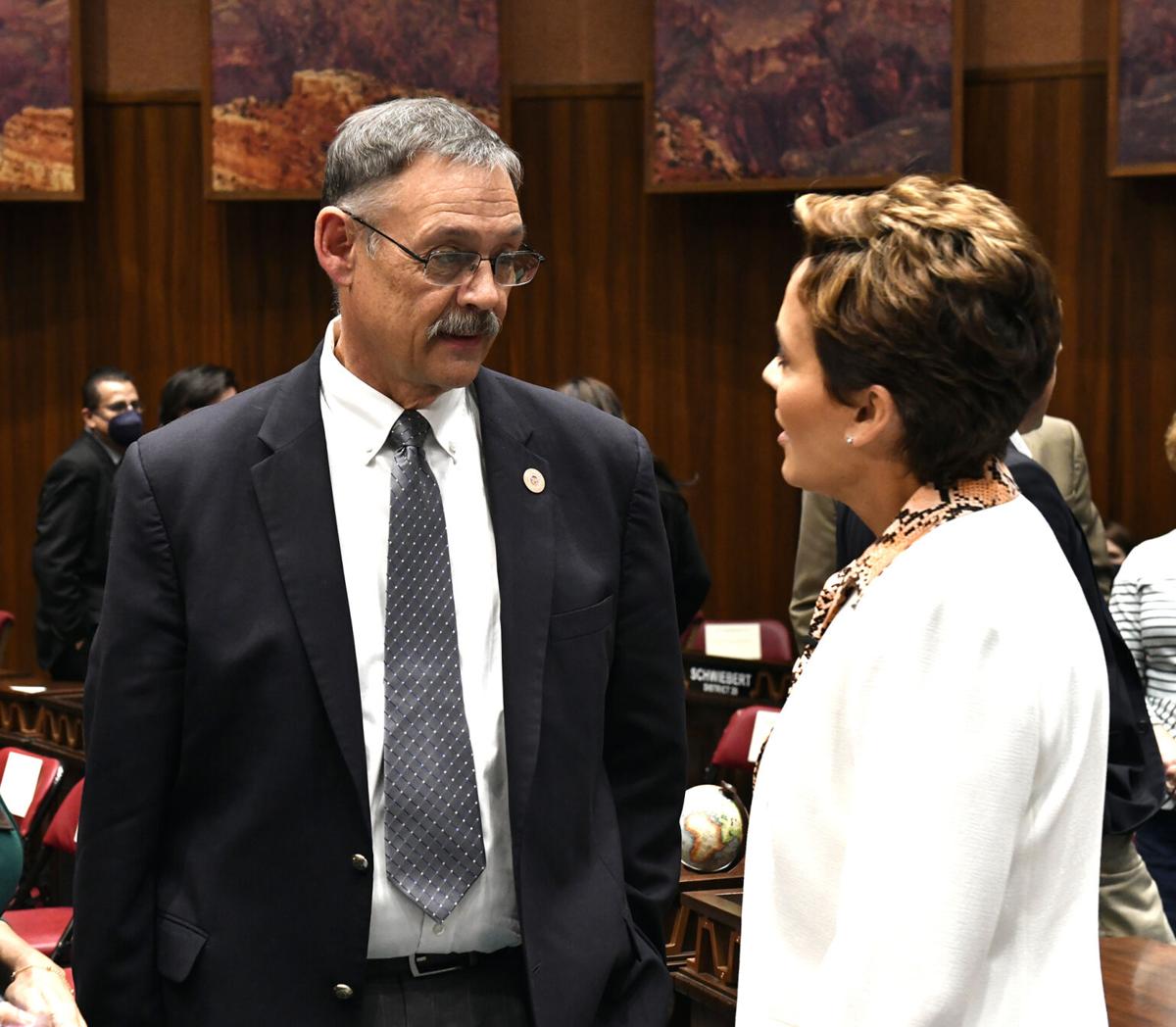PHOENIX — Two attorneys who argued unsuccessfully for Kari Lake that voting machines should be outlawed in Arizona won’t be disciplined for filing what a trial judge called a “frivolous” lawsuit.
A three-member panel that decides matters of lawyer discipline for the Arizona Supreme Court acknowledged that the legal arguments presented by Kurt Olsen and Andrew Parker did not prevail in a federal court case that eventually went to the U.S. Supreme Court. And Margaret Downie, the presiding disciplinary judge, said the pair raised some debatable legal theories and allegations.
The trial judge had sanctioned the attorneys and directed them to pay the $220,000 in legal fees racked up by Maricopa County in defending against the lawsuit.
But Downie and the other two members of the disciplinary committee said in a new ruling that the State Bar of Arizona, which filed the charges, failed to meet its burden to show, by clear and convincing evidence, there was ethical misconduct.
Potentially more significant, Downie said the fact that there may have been little likelihood that the lawsuit would succeed does not mean the lawyers should be punished for pursuing it.
She cited a ruling earlier this year by the Arizona Supreme Court where the justices refused to impose sanctions against the Arizona Republican Party in an unsuccessful election-related lawsuit against Maricopa County Recorder Stephen Richer.
“A claim may lack winning merit without being sufficiently devoid of rational support to render it groundless,” Downie wrote. That is the case here, she and the panel said.
Lake and Mark Finchem filed suit in 2022 alleging that the machines used to tally the paper ballots “cannot be deemed reliably secure and do not meet the constitutional and statutory mandates to guarantee a free and fair election.” They also argued the use of components from other countries made them vulnerable to hacking.
They sued to have the 2022 election — the one in which Lake was running for governor and Finchem for secretary of state — conducted with paper ballots that would be counted by hand, calling it “the most effective and presently only secure election method.”
U.S. District Court Judge John Tuchi rejected their claims. He said they amounted to a “long chain of hypothetical contingencies” — ones that never occurred in Arizona — that would have to take place for any harm to occur.
Lake and Finchem had no better luck with the 9th Circuit court of Appeals, which found they never presented any evidence that the machines used in Arizona to count ballots had ever been hacked. The Supreme Court refused to disturb that ruling.
The State Bar filed a complaint against their two lawyers with a laundry list of accusations of ethical violations, ranging from relying on “conclusory or irrelevant information” in filing the lawsuit to presenting a “dearth” of information.
Downie and the panel rejected each of the detailed allegations.
For example, the Bar lawyers said Olsen and Parker ran afoul of the rules governing lawyers by falsely claiming all the voting machines “can be connected to the internet or cellular networks.”
It is true, Downie said, that a “special master” who reviewed the voting systems used in Maricopa County in 2020 concluded they could not be connected to the internet.
But she said that conclusion was not legally binding, and the experts hired by Lake and Finchem “strongly disagreed.” So, Downie said, the attorneys did not violate any rules by failing to point that out in their complaints.
Among others, she also rejected arguments by the Bar that the pair acted unethically in failing to present legal arguments and precedents that did not support their arguments.
“It is not the nature of our adversary system to require lawyers to demonstrate to the court that they have exhausted every theory, both for and against their client,” she wrote.
Get your morning recap of today's local news and read the full stories here: tucne.ws/morning





